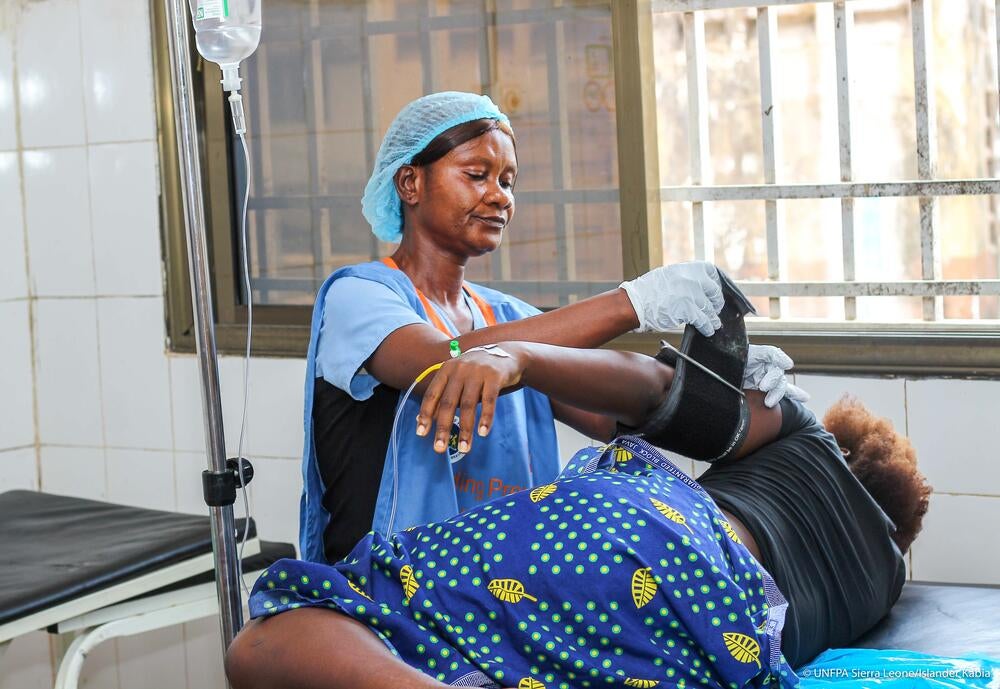A Lifeline for Mothers: How the Midwifery Training is Saving Lives in Sierra Leone
A quiet revolution is underway in Sierra Leone's healthcare system, with a surge in skilled midwives playing a critical role in reducing maternal and neonatal deaths. At the forefront of this progress is Mary Turay, a 2023 graduate of the Makeni School of Midwifery. Supported by UNFPA with funding from the UK Government (FCDO), Mary is part of a new generation of healthcare professionals transforming maternal health outcomes in Sierra Leone.
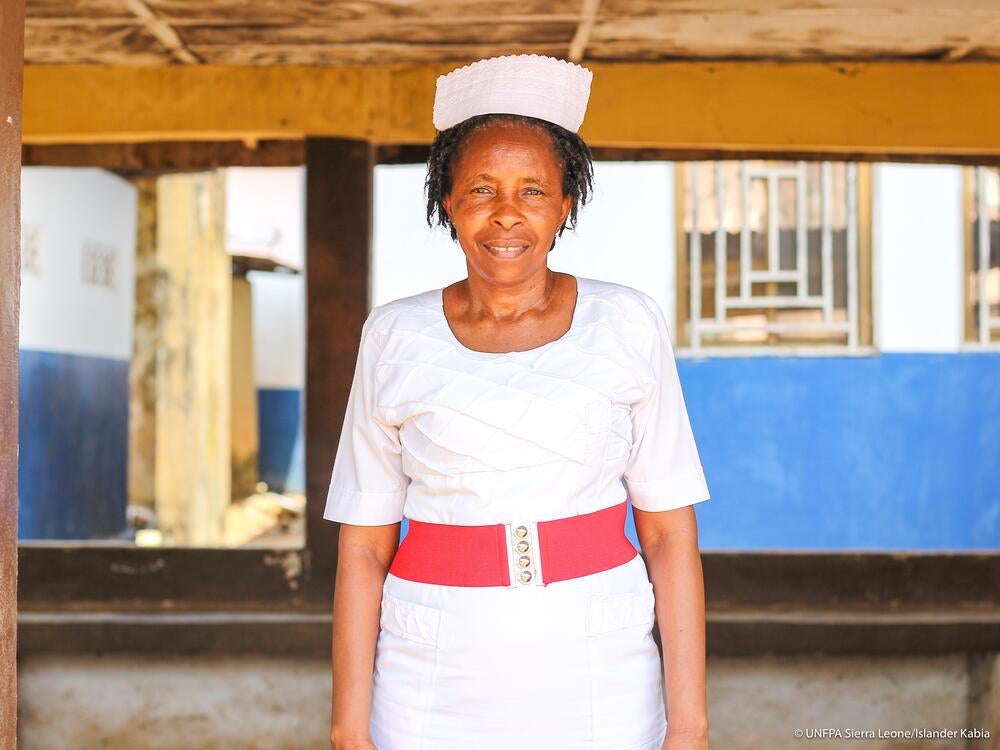
Midwives are central to UNFPA's goals of achieving zero preventable maternal deaths, zero unmet needs for family planning, and zero gender-based violence and harmful practices. Through the FCDO-funded "Saving Lives" programme, UNFPA collaborated with the Government of Sierra Leone to enhance midwifery training in Freetown, Makeni, and Bo. This strategic investment directly addressed the critical shortage of skilled birth attendants, ensuring safer childbirth experiences for women across the country.
The impact of this commitment is undeniable. Over the past two decades, Sierra Leone has achieved a remarkable 79% reduction in its maternal mortality ratio falling from 1,682 per 100,000 live births in 2000 to 354 per 100,000 live births in 2023. This milestone underscores the profound effect of sustained investment in midwifery education and comprehensive maternal health services. It also highlights the importance of partnership, policy support, and community engagement in driving real and measurable change.
Mary’s journey into midwifery was driven by a deep sense of purpose—witnessing firsthand the devastating impact of postpartum hemorrhage (PPH) on women during childbirth. “I saw how women suffered in delivery, how postpartum hemorrhage was taking lives, and I knew I had to contribute to reduce this,” Mary explains. “Now, I have the skills and experience to intervene and save lives, and that makes me proud to be a midwife.”
The Midwifery training Mary received equipped her with the essential knowledge and skills to effectively manage pregnancy complications, facilitate safe deliveries, and provide crucial newborn care. Prior to the training, Mary had limited understanding of maternity care. Today, she is a vital member of the post-operative ward at the Makeni Regional Government Hospital, diligently ensuring mothers experience a safe and healthy recovery after giving birth. The dedication of midwives like Mary Turay offers a beacon of hope, promising healthier futures for mothers and newborns in Sierra Leone.
Reflecting on her training, Mary emphasizes the impact it has had on her ability to provide crucial care. "The school prepared me greatly," she states. "I didn’t understand much about delivery before, but now I have the expertise to care for pregnant women and newborns. The practical experience I gained during my training has helped me save many lives."
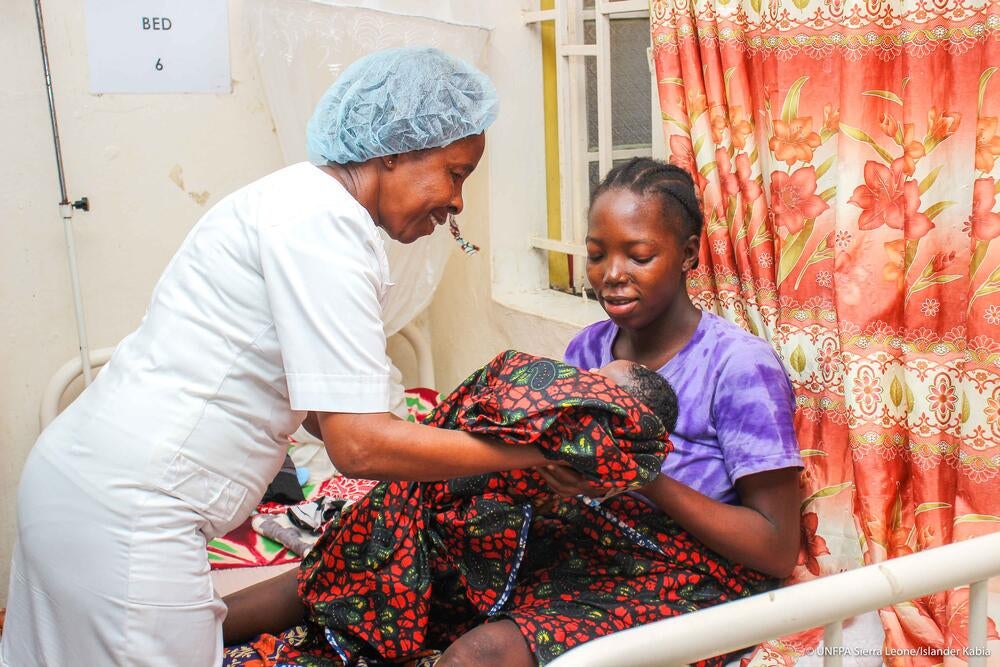
She offers a strong message of encouragement to current midwifery students: "Take your studies seriously," she urges, highlighting the profound life-saving impact of their future work.
Mary's journey into this critical role has been significantly supported by the sustained investment in midwifery education and training initiatives by the Government of Sierra Leone and its development partners. "UNFPA supported me from the time I entered midwifery school until I completed my studies," she gratefully acknowledges.
The increasing number of well-trained midwives like Mary is a significant factor in Sierra Leone's steady progress towards reducing both maternal and neonatal mortality rates, offering a brighter outlook for the health and well-being of mothers and newborns across the country.
A Midwife’s Mission to Save Mothers
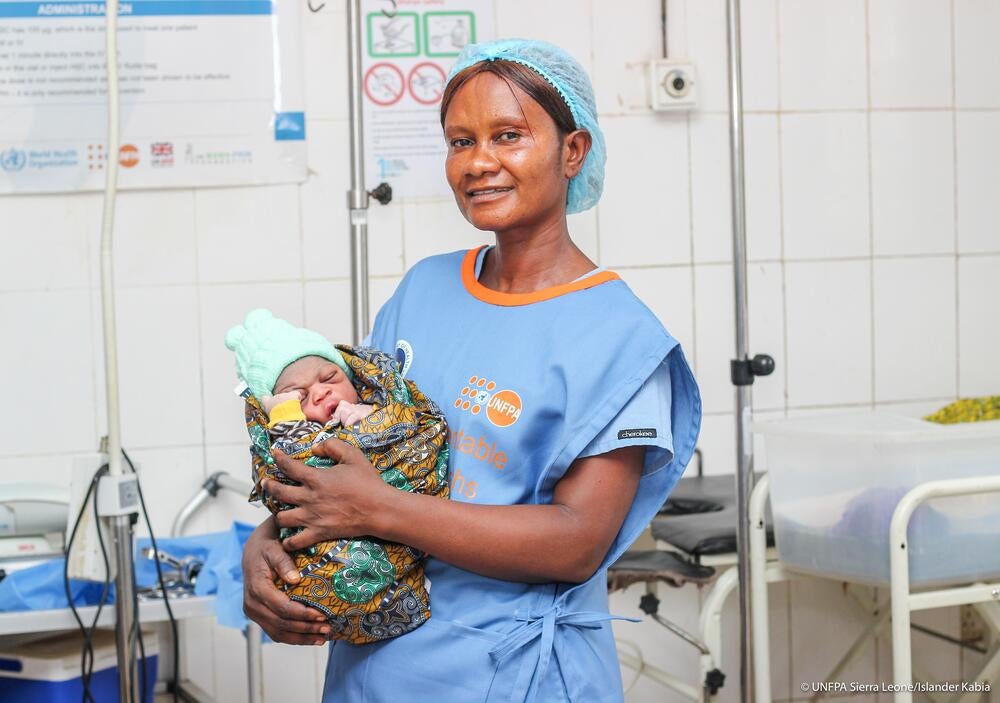 Aminata Koroma never planned to become a midwife. Growing up in a community where maternal deaths were common, she often heard heartbreaking stories of women who lost their lives during childbirth. But it wasn’t until she began her Maternal and Child Community Health training that she witnessed, firsthand, the life-saving work of midwives. “The way they handled complicated deliveries, the urgency in their actions—it inspired me,” she recalls. “I knew I had to be part of the solution.”
Aminata Koroma never planned to become a midwife. Growing up in a community where maternal deaths were common, she often heard heartbreaking stories of women who lost their lives during childbirth. But it wasn’t until she began her Maternal and Child Community Health training that she witnessed, firsthand, the life-saving work of midwives. “The way they handled complicated deliveries, the urgency in their actions—it inspired me,” she recalls. “I knew I had to be part of the solution.”
Determined to make a difference, Aminata enrolled at the School of Midwifery in Bo, where she received comprehensive training in maternal and newborn care. The programme, supported by UNFPA in partnership with the UK Government through FCDO, provided not only technical skills but also hands-on experience in managing emergencies. “We were trained to detect danger signs early, handle abnormal cases, and know when to call for advanced medical intervention,” she explains.
Now working in the Bo Government Hospital labour ward, Aminata faces life-and-death situations daily. One case remains etched in her memory. “A 23-year-old woman arrived at the hospital, bleeding profusely. Time was against us. I spoke to her, reassured her, and our prompt intervention saved her life,” she says.
These experiences fuel her passion to continue fighting maternal mortality in Sierra Leone. “We’re seeing progress—fewer women are dying in childbirth. But we still need more resources, more midwives, and better equipment,” she emphasizes.
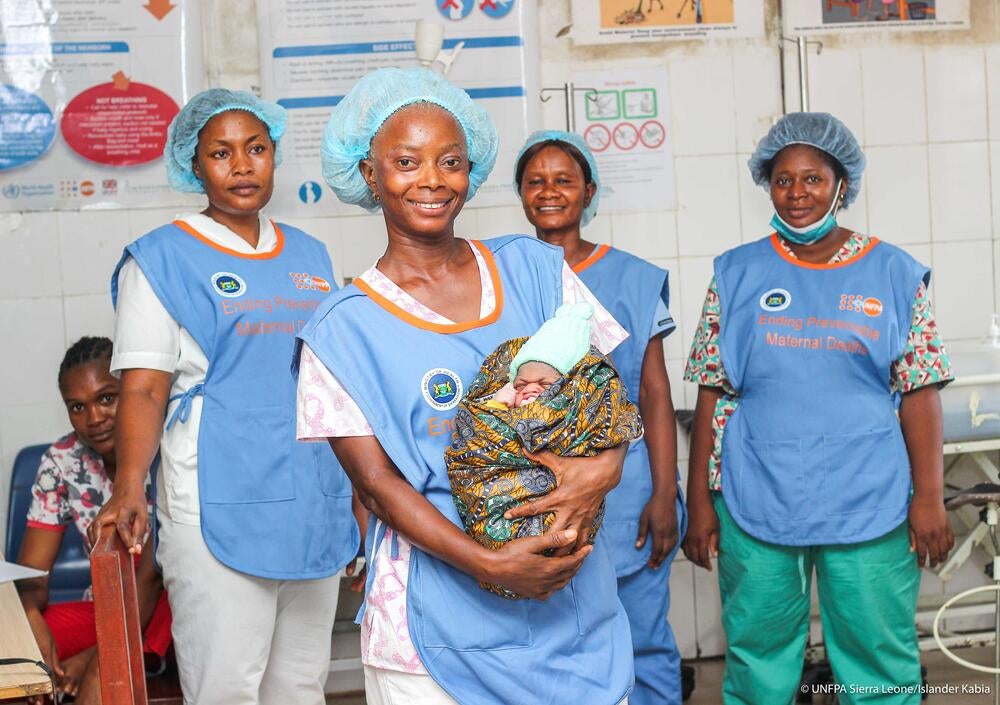
Aminata is a testament to the transformative power of the Midwifery Programme which was a vital partnership between UNFPA, the Ministry of Health and the UK Government. Sierra Leone has made remarkable progress in midwifery, increasing the number of trained midwives from fewer than 100 in 2010 to approximately 1,800 in 2024. Through sustained investment in midwifery training and essential maternal healthcare, more women have the opportunity to experience safe childbirth and return home to their families.
For Aminata Koroma, every safe delivery is a reminder of why she chose this path. "Midwifery is more than a profession—it's a calling to protect the lives of mothers and babies," she declares resolutely. "And I will always answer that call."
